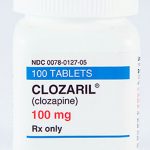Carbamazepine (Tegretol): Uses, Dosage, Side Effects, Withdrawal

Carbamazepine more commonly known by the brand name Tegretol is a medication used alone or in combination with other medications to control certain types of seizures in people with epilepsy. It is also used to treat trigeminal neuralgia (a condition that causes facial nerve pain).
Carbamazepine extended-release capsules (Equetro brand only) are also used to treat episodes of mania (frenzied, abnormally excited, or irritated mood) or mixed episodes (symptoms of mania and depression that happen at the same time) in patients with bipolar I disorder (manic-depressive disorder; a disease that causes episodes of depression, episodes of mania, and other abnormal moods).
Carbamazepine may also be helpful when prescribed “off-label” for behavioral or psychological symptoms of dementia. “Off-label” means that it hasn’t been approved by the Food and Drug Administration for this condition. Your mental health provider should justify his or her thinking in recommending an “off-label” treatment. They should be clear about the limits of the research around that medication and if there are any other options.
How Carbamazepine (Tegretol) works
Carbamazepine is in a class of medications called anticonvulsants. It works by reducing abnormal electrical activity in the brain. It is believed that its primary mechanism of action is the blockade of voltage-sensitive sodium and calcium channels, although the molecular mechanisms underlying the actions of carbamazepine and other mood-stabilizing drugs used in the treatment of bipolar disorders are still largely unknown.
What Is The Most Important Information I Should Know About Carbamazepine (Tegretol)?
Bipolar disorder requires long-term treatment. Do not stop taking carbamazepine, even when you feel better. With input from you, your health care provider will assess how long you will need to take the medicine. Missing doses of carbamazepine may increase your risk for a relapse in your mood symptoms.
Do not stop taking carbamazepine or change your dose without talking to your healthcare provider first.
In order for carbamazepine to work properly, it should be taken every day as ordered by your healthcare provider.
Periodically, your healthcare provider may ask you to provide a blood sample to make sure the appropriate level of medication is in your body and to assess for side effects, such as changes in blood cell counts.
What Should I Discuss With My Healthcare Provider Before Taking Carbamazepine (Tegretol)?
• Symptoms of your condition that bother you the most
• If you have thoughts of suicide or harming yourself
• Medications you have taken in the past for your condition, whether they were effective or caused any adverse effects
• If you experience side effects from your medications, discuss them with your provider. Some side effects may pass with time, but others may require changes in the medication.
• Any other psychiatric or medical problems you have
• All other medications you are currently taking (including over the counter products, herbal and nutritional supplements) and any medication allergies you have
• Other non-medication treatments you are receiving, such as talk therapy or substance abuse treatment. Your provider can explain how these different treatments work with the medication.
• If you are pregnant, plan to become pregnant, or are breast-feeding
• If you drink alcohol or use illegal drugs
How Should I Take Carbamazepine (Tegretol)?
Carbamazepine (Tegretol) is usually taken 2-4 times per day with or without food.
Typically, patients begin at a low dose of medicine and the dose is increased slowly over several weeks.
The dose usually ranges from 200 mg to 1600 mg each day, but some patients may require more based on symptoms. Only your healthcare provider can determine the correct dose for you.
Carbamazepine (Tegretol) suspension: Measure with a dosing spoon or oral syringe, which you can get from your pharmacy.
Extended-release capsules: Swallow whole or sprinkle onto food, such as applesauce or pudding and eat immediately. Do not chew the sprinkle capsule or contents.
Use a calendar, pillbox, alarm clock, or cell phone alert to help you remember to take your medication. You may also ask a family member or a friend to remind you or check in with you to be sure you are taking your medication.
What Happens If I Miss A Dose Of Carbamazepine (Tegretol)?
If you miss a dose of carbamazepine, take it as soon as you remember, unless it is closer to the time of your next dose. Discuss this with your healthcare provider. Do not double your dose or take more than what is prescribed.
What Should I Avoid While Taking Carbamazepine (Tegretol)?
Avoid drinking alcohol or using illegal drugs while you are taking carbamazepine. They may decrease the benefits (e.g., worsen your condition) and increase adverse effects (e.g., sedation) of the medication.
Avoid consuming large quantities (8 ounces or more) of fresh grapefruit juice, as this can increase levels of carbamazepine and increase your risk of side effects or rash.
What Happens If I Overdose With Carbamazepine (Tegretol)?
If an overdose occurs, call your doctor or 911. You may need urgent medical care. You may also contact the poison control center at 1-800-222-1222. A specific treatment to reverse the effects of carbamazepine does not exist.
How Long Does It Take For Carbamazepine (Tegretol) To Work?
It is very important to tell your doctor how you feel things are going during the first few weeks after you start taking carbamazepine. It will probably take several weeks to see big enough changes in your symptoms to decide if carbamazepine is the right medication for you.
Mood stabilizer treatment is generally needed lifelong for persons with bipolar disorder. Your doctor can best discuss the duration of treatment you need based on your symptoms and illness.
Can a pregnant woman take Carbamazepine (Tegretol)?
If you are planning on becoming pregnant, notify your healthcare provider so that he/she can best manage your medications. People living with bipolar disorder who wish to become pregnant face important decisions. It is important to discuss the risks and benefits of treatment with your doctor and caregivers.
Carbamazepine (Tegretol) has been associated with an increased risk of defects of the head and face, fingernails, and developmental delay. There may be precautions to decrease the risk of this effect. Do not stop taking carbamazepine without first speaking to your healthcare provider. Discontinuing mood stabilizer medications during pregnancy has been associated with a significant increase in symptom relapse.
Can a Breastfeeding woman take Carbamazepine (Tegretol)?
No, Carbamazepine (Tegretol) should be avoided while breastfeeding, since carbamazepine does pass into breast milk. Talk with your doctor about whether or not it is safe to breastfeed while taking carbamazepine.
How to reduce Carbamazepine (Tegretol) dose
When you decide with your doctor to stop taking Carbamazepine (Tegretol), you will probably reduce the dose slowly over at least a month to stop you from getting any uncomfortable withdrawal symptoms. Go and speak to your doctor if you have missed a few doses or have decided to stop taking your medication.
What Are the Possible Side Effects Of Carbamazepine (Tegretol)?
Common side effects
• Dizziness or drowsiness
• Unsteadiness when standing or walking
• Nausea or vomiting
• Dry mouth
• Constipation
• Blurry or double vision
Is Carbamazepine (Tegretol) a safe medication?
Carbamazepine (Tegretol) can cause a decrease in the body’s sodium level. Some signs of low sodium include nausea, tiredness, lack of energy, headache, confusion, or more frequent or more severe seizures.
Carbamazepine (Tegretol) may cause rare but serious blood problems including low white blood cell counts. Symptoms may include fever, sore throat, or other infections that come and go or do not go away, easy bruising, red or purple spots on your body, bleeding gums or nose bleeds, or severe fatigue or weakness. Your doctor will occasionally order blood work to monitor for this.
In rare cases (<1%) a severe, spreading rash with blistering of the skin in patches over the entire body along with fever, headache, and cough can occur (Stevens-Johnson syndrome). Although this is rare with carbamazepine, discontinuation of this medication is necessary. Rare cases of severe allergic reactions have been reported. Symptoms include swelling of the face, eyes, lips, or tongue, difficulty swallowing or breathing. If you experience any of these side effects, it is important to seek medical care immediately.
Studies have found that individuals who take antiepileptic medications including carbamazepine have suicidal thoughts or behaviors up to twice as often as individuals who take placebo (inactive medication). These thoughts or behaviors occurred in approximately 1 in 500 patients taking the antiepileptic class of medications. If you experience any thoughts or impulses to hurt yourself, you should contact your doctor immediately.
Are There Any Risks For Taking Carbamazepine (Tegretol) For Long Periods Of Time?
To date, there are no known problems associated with the long-term use of carbamazepine. It is a safe and effective medication when used as directed.
It is important to note that some of the side effects listed above (particularly changes in blood sodium, rash, and suicidal thoughts) may continue to occur or worsen if you continue taking the medication. It is important to follow up with your doctor for blood work and to contact your doctor immediately if you notice any skin rash or changes in mood or behavior.
What Other Medications May Interact With Carbamazepine (Tegretol)?
The following medications may increase the level and effects of carbamazepine:
• The mood stabilizer and antiseizure medication valproic acid/Divalproex (Depakote®)
• Certain antibiotics, such as ciprofloxacin (Cipro®), erythromycin (Ery-tab®), clarithromycin (Biaxin®)
• Medications for heartburn or reflux, such as cimetidine (Tagamet®) and omeprazole (Prilosec®)
• Antifungal medications, such as ketoconazole (Nizoral®), fluconazole (Diflucan®), itraconazole (Sporanox®), voriconazole (Vfend®)
• Certain heart medications, such as diltiazem (Cardizem®) or verapamil (Calan®, Isoptin®)
• Certain medications used for mood or sleep, such as trazodone (Desyrel®) or nefazodone (Serzone®)
The following medications may decrease the level and effect of carbamazepine:
• Phenytoin (Dilantin®), phenobarbital, primidone (Mysoline®)
• Rifampin (Rifadin®)
Carbamazepine (Tegretol) may decrease the level and effects of:
• Oral contraceptives (birth control pills)
• Certain medications used for psychiatric disorders, such as lurasidone (Latuda®), aripiprazole (Abilify®), alprazolam (Xanax®), escitalopram (Lexapro®), trazodone (Desyrel®), and nefazodone (Serzone®)
• Certain heart medications, such as diltiazem (Cardizem®) or verapamil (Calan®, Isoptin®)
• Anti-rejection medications used in organ transplants, like tacrolimus (Prograf®) and cyclosporine (Neoral®, Sandimmune®)
• Certain cholesterol medications, like simvastatin (Zocor®), atorvastatin (Lipitor®)
• The blood thinner warfarin (Coumadin®)
• Antiseizure medications like phenytoin (Dilantin®), phenobarbital, and valproic acid/Divalproex (Depakote®), lamotrigine (Lamictal®).





